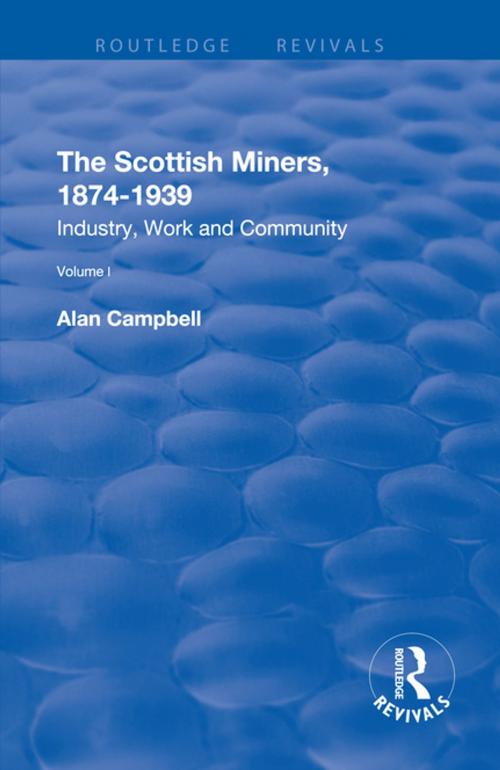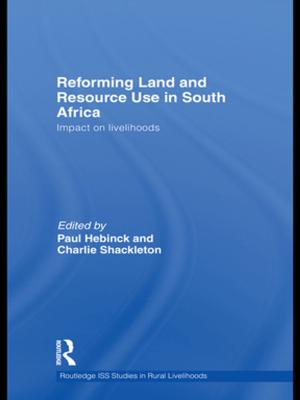| Author: | Alan Campbell | ISBN: | 9781351208130 |
| Publisher: | Taylor and Francis | Publication: | January 12, 2018 |
| Imprint: | Routledge | Language: | English |
| Author: | Alan Campbell |
| ISBN: | 9781351208130 |
| Publisher: | Taylor and Francis |
| Publication: | January 12, 2018 |
| Imprint: | Routledge |
| Language: | English |
The Scottish miners experienced enormous changes during these sixty-five years. Enjoying a high degree of autonomy underground throughout the nineteenth century, their work situation was transformed in the twentieth as Scotland became the most intensively mechanised of the British coalfields. Grievances generated by this change led to strike rates in Scotland being up to ten and fifteen times higher than in the major English coalfields. Such militancy displayed considerable geographical variation however, and the translation of grievances into industrial conflict was mediated by variables rooted in the community as well as the pit. A central theme of this volume is to explore the differences between the four principal mining regions in Scotland through the detailed study of ten localities within them. This innovative, two-tiered comparison is used to analyse the competing loyalties of class, gender and ethnicity, to map the uneven terrain of popular protest and social disorder, and to challenge traditional stereotypes of ’a peaceable kingdom’. This historical sociology of the Scottish coalfields frames the analysis of trade unionism and politics which is developed in the companion volume to this book.
The Scottish miners experienced enormous changes during these sixty-five years. Enjoying a high degree of autonomy underground throughout the nineteenth century, their work situation was transformed in the twentieth as Scotland became the most intensively mechanised of the British coalfields. Grievances generated by this change led to strike rates in Scotland being up to ten and fifteen times higher than in the major English coalfields. Such militancy displayed considerable geographical variation however, and the translation of grievances into industrial conflict was mediated by variables rooted in the community as well as the pit. A central theme of this volume is to explore the differences between the four principal mining regions in Scotland through the detailed study of ten localities within them. This innovative, two-tiered comparison is used to analyse the competing loyalties of class, gender and ethnicity, to map the uneven terrain of popular protest and social disorder, and to challenge traditional stereotypes of ’a peaceable kingdom’. This historical sociology of the Scottish coalfields frames the analysis of trade unionism and politics which is developed in the companion volume to this book.















